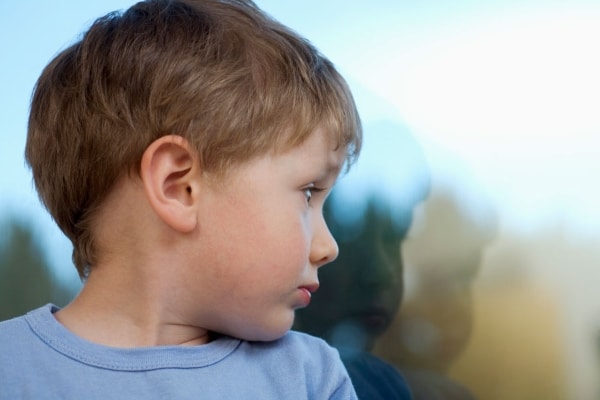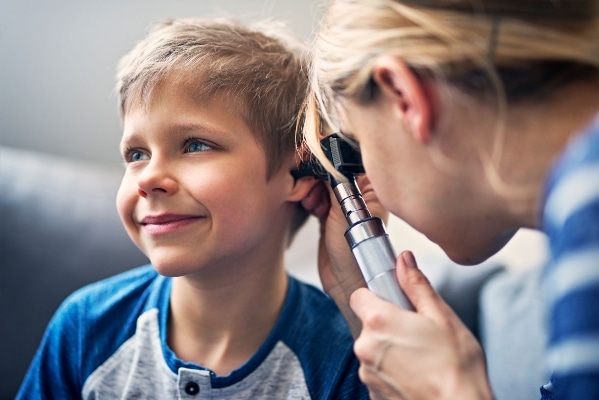The House Pediatrics Department provides audiological services children with hearing loss. We are committed to a team approach to provide the highest quality evaluation and treatment of children with hearing loss.

Pediatric Hearing Loss
Hearing loss can affect those of all ages, including children. There are three main causes of hearing loss in children.
- Congenital factors contribute to children who are born with hearing problems
- Otitis media (ear infection) occurs when fluid accumulates in the middle ear.
- Acquired hearing loss is triggered by illnesses, physical trauma, exposure to loud noises and medications.
There are a number of signs that should prompt you to have your child’s hearing tested ASAP. These include:
- A delay in speech and language.
- Failure to respond to loud noises or your voice.
- Poor academic performance.
- Frequent ear infections.
- Disorders associated with hearing loss (i.e. Down syndrome or autism).
- Family history of hearing loss.

Pediatric Hearing Tests
Diagnosing and treating hearing loss in the pediatric population requires different instruments than those used on adults.
Newborns and infants require subjective tests, as they are unable to articulate what they can and cannot hear.
- Auditory Brainstem Response (ABR) provides information on how well a child’s cochlea and neural pathway is functioning.
- Otoacoustic Emissions (OAEs) are the barely audible sounds given off by the hairs lining the cochlea. If no OAES are detected, this could mean there is a blockage in the ear canal, fluid in the middle ear or damage to the hair cells within the cochlea.
Older children are tested with:
- Visual response audiometry and conditioned play audiometry broadcast a sound through speakers. Depending on the child’s age, they are either taught to turn their head toward an animated toy or video (visual response) or drop a block in a bucket (conditioned play) when they hear a sound. These versions of pure-tone testing cannot discern single-sided hearing loss.
Speech discrimination involves reading a series of words aloud and asking the child if they heard the words or to repeat the words back to the tester